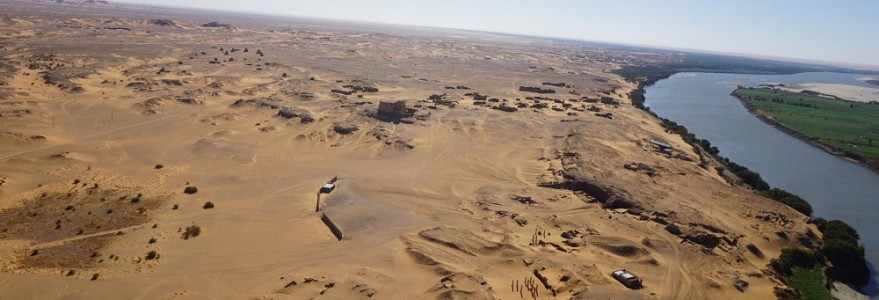The first excavation season of the project called “UMMA – Urban Metamorphosis of the community of a Medieval African capitality” has just begun. It is founded by the European Research Council. In 2017, Dr. Artur Obłuski from the Polish Centre of Mediterranean Archaeology of UW (PCMA UW) won a ERC grant in order to analyze the transformation process of the city of Dongola in Sudan from an important Christian centre, the capital of the kingdom of Makuria, into a Muslim city.
The “UMMA – Urban Metamorphosis of the community of a Medieval African capitality” project will take 5 years. This year’s fieldwork season, directed by UW archaeologists, Dr. Obłuski and Dr. Dorota Dzierzbicka, will last four months. In all, the team will spend 16 months in the field.
The team of researchers assembled by Dr. Obłuski has an interdisciplinary character. It consists of archaeologists, epigraphers, documentalists and pottery specialists. During its work in Dongola it will also take advantage of the latest scientific methods in cooperation with specialists in the sciences, such as physics, biology and chemistry.
In the current season the team will focus their research on the residential district from the 14th to 16th century – a time when Dongola underwent political, social and religious changes.
Archaeologists think that such deep changes in the city’s society must have been reflected in individual households and families. That is why they will be investigating residential houses: their internal plans and fixtures as well as traces of their inhabitants’ everyday lives.



